Project News ·
A novel and strong governance model ensures improved land management practices and stewardship for the Mackay-Whitsundays region
While often overlooked, a strong governance framework is vital to steer a program toward its outcomes and to effectively handle the inevitable changes that occur throughout the process.
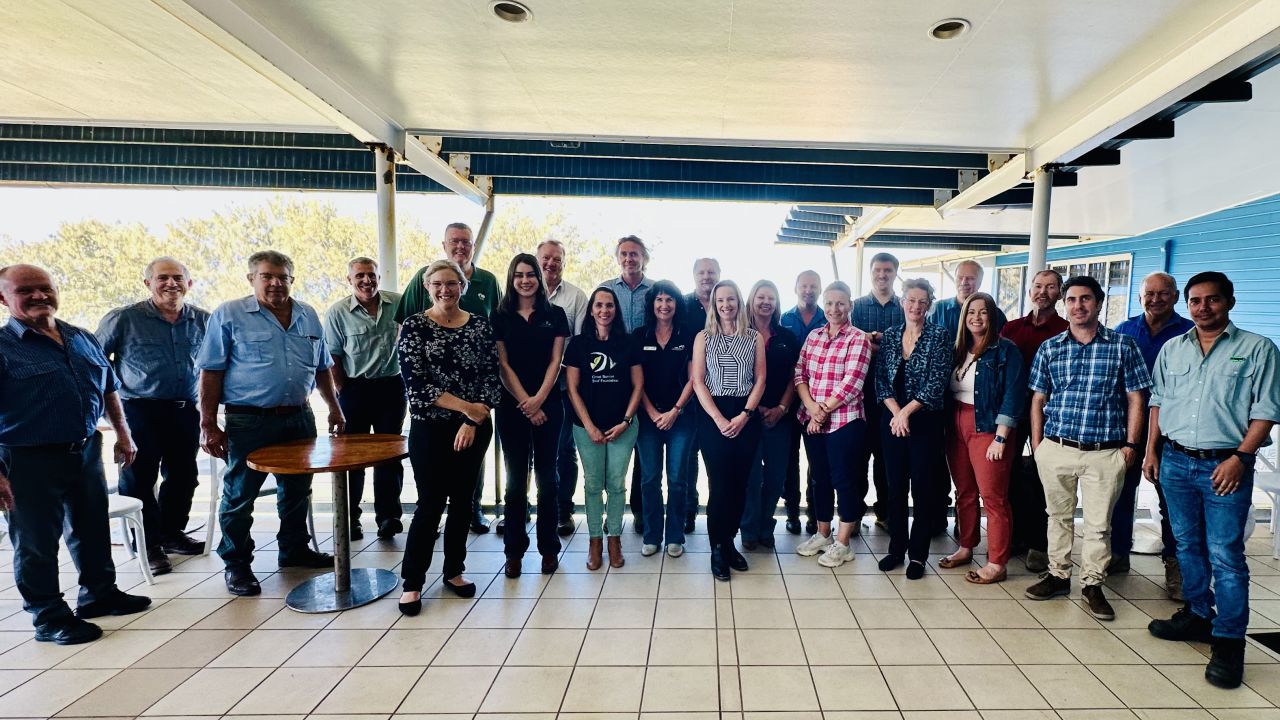
Funding for water quality improvement activities has typically been managed either through funding discrete, unconnected projects or through a single program and single contract to a lead organisation. The latter would often involve individual delivery providers reporting to the lead organisation, and projects reporting collectively to the funder. The first approach misses the opportunity to drive collaboration and find synergies between activities. The second means there is reduced transparency over who is doing what and makes it harder to identify challenges or opportunities to value-add to the program.
In response to these issues, a new approach was implemented by the partnership between the Australian Government’s Reef Trust and the Great Barrier Reef Foundation. Through this approach, projects under the Mackay Whitsunday Water Quality Program (MWWQP) report directly to the Foundation allowing for greater clarity and transparency. This direct contractual agreement has also created greater ownership throughout projects and a governance structure which in turn promotes individual accountability. It also increases the scope for more delivery providers to be engaged diversifying the on-ground options and reducing the risks associated with the delivery.
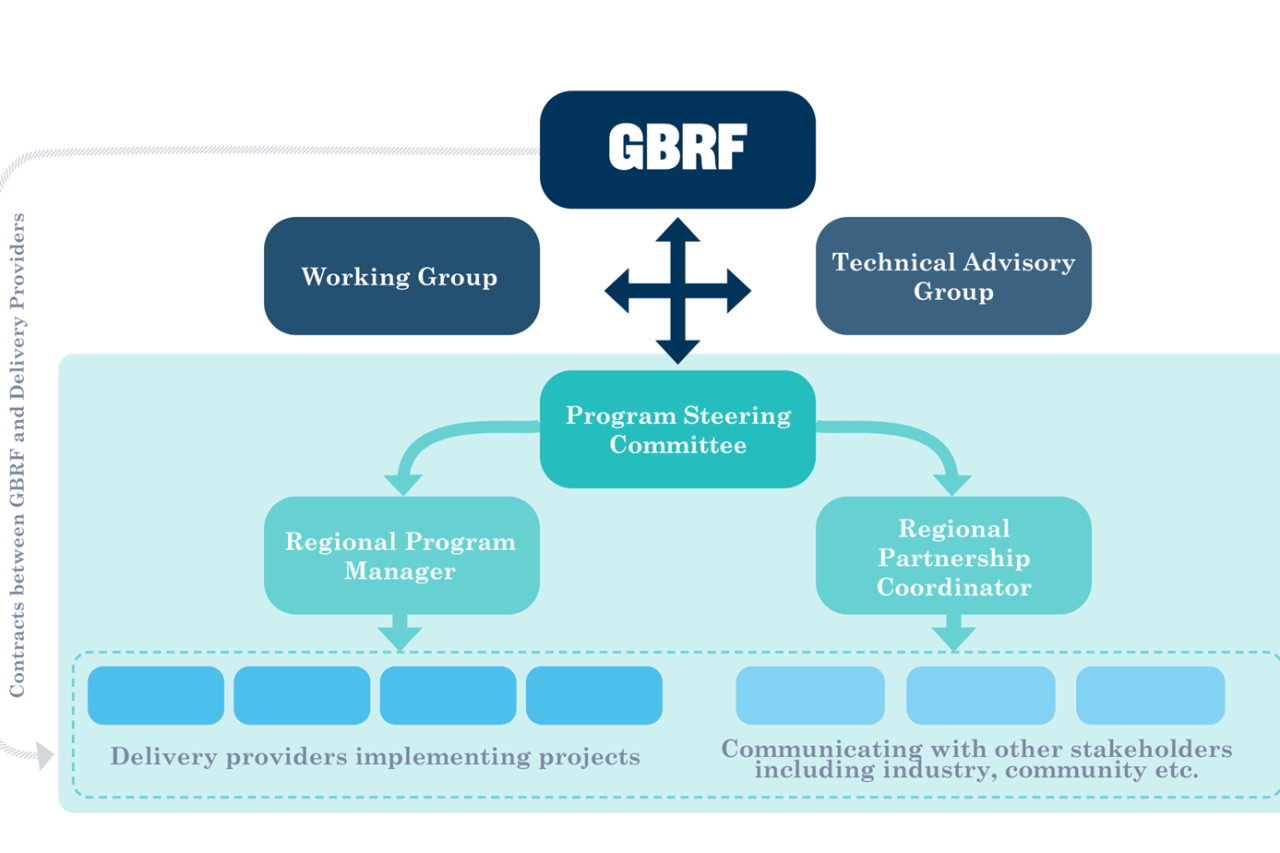
RTP Water Quality Regional Program Governance Model. Credit: GBRF
At the same time, by establishing the roles of a local program manager and partnership coordinator, the program has fostered local partnerships and sought the synergies and efficiencies that can be found by operating at a program level. Under the MWWQP, the regional program manager role is undertaken by Central Resource Services with the partnership coordinator role delivered by the local Natural Resource Management body Reef Catchments. Working closely together, these positions lead the day-to-day management of the program and provide support to delivery providers and landholders, identifying opportunities to collaborate when implementing change on ground and ensuring investment and outcomes are maximised. This governance approach recognises the importance of independent local leadership, oversight, and technical support when delivering a regional water quality improvement program.
Each governance structure of the Reef Trust Partnership Water Quality Regional Programs has been tailored for the specific regional requirements in which they are being delivered. This is to ensure the investment under the program is guided by regional priorities with participation of key stakeholders in the Steering Committee and has the support to a level required by the region or by the investment.
The complexities of the MWWQP also require nimble and adaptive management and collaboration between the program manager and partnership coordinator. Together they help respond to and support the delivery providers who are working with the growers to improve land management practices. The regional program manager primarily aids in managing project implementation and deliverables, addressing challenges faced by delivery providers, and identifying alternate means to track progress towards water quality outcomes. Meanwhile, the partnership coordinator provides support through coordinating engagement, promoting collaboration, developing project communications, and managing the internal geospatial database system that supports the management of the program.
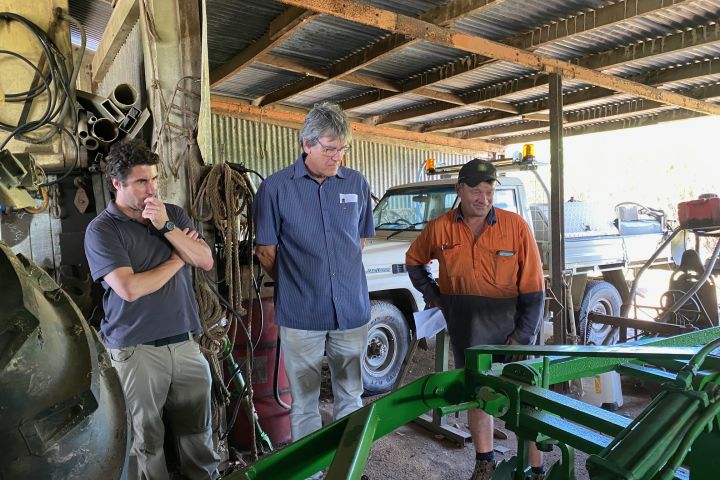
Program Manager Chris Dench and Technical Advisor with Grower. Credit: GBRF
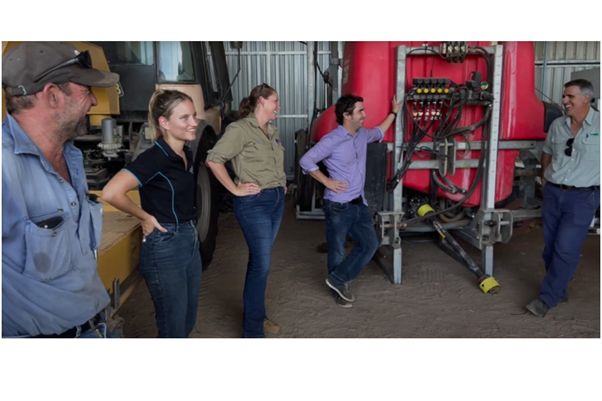
Program Manager Chris Dench with delivery providers and grower. Credit: GBRF
The partnership between the regional manager and partnership coordinator has allowed the program to identify and address challenges associated with the delivery of land management and the adoption of new practices and foster a high level of collaboration between engaged stakeholders. An example of this was the MWWQP annual forum held in Mackay in September 2023. These annual events provide an opportunity to showcase the achievements of the individual delivery providers and for the projects to share knowledge and learnings.
To maximise knowledge transfer, delivery providers, the program steering committee, landholders and the Australian and Queensland Governments were invited to hear about the program’s outcomes, challenges, and future opportunities. This resulted in several recommendations from attendees which the program manager and partnership coordinator have now built into the work plan for the next six months. This includes providing participating growers with a water quality report card and reinvigorating the regional extension information day.
Growers have also been able to benefit from the increase in collaboration, integration and diversity of providers promoted by the program design. Under the MWWQP, growers can engage with multiple delivery providers to tailor the support they need. This allows a grower to seek advice and support on nutrient management from one delivery provider and pesticide management from another if they choose too, leading to significant progress under the program to progress growers to best management practice.
“The support from the Mackay-Whitsunday Water Quality Program has allowed my farm to get ahead of the legislation. When deciding to be involved with the program it was important that I had the freedom to choose a provider that I had a trusted relationship with. Also, under the program, I was able to get assistance from multiple providers who were experts in different management areas, and I have learned a lot through the program, empowering my decision-making.” said Brian Grech, MWWQP Grower.
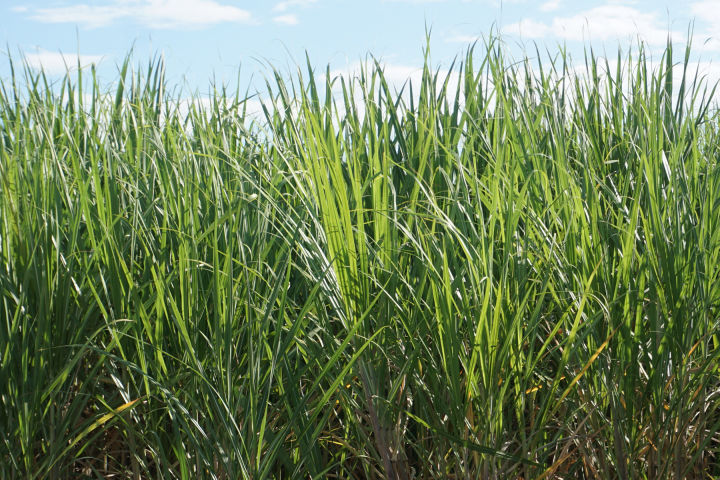
Cane field. Credit: GBRF
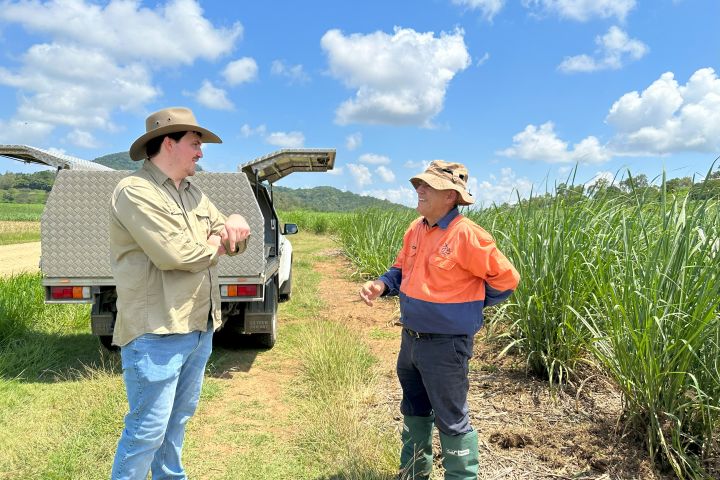
Reef Catchments program coordinator Todd McNeill and SRA's Cane to Creek project manager Matt Schembri discussing results at one of the project trial sites. Credit: Reef Catchments
Additionally, sharing access to delivery provider’s equipment between grower projects, along with the shared promotion and hosting of field days has strengthened collaboration between delivery providers and yielded positive outcomes for growers.
One key outcome of the MWWQP which is a product of collaboration and the ability to identify gaps within a region is the development of a regionally specific, grower-focused information platform called CaneRise. Collective effort from delivery providers in the development and design has resulted in a website that is able to provide information and guidance for Mackay-Whitsunday growers for land management and access to programs and support.
Through a tailored and adaptive governance structure the MWWQP has delivered a program that supports Mackay and Whitsunday growers to engage in, and profit from the adoption of new practices while producing significant environmental outcomes.
Top photo: MWWQP annual forum 2023 participants. Credit: GBRF
#Related

Project News ·
Community at the forefront of Reef water quality protection

Project News ·


